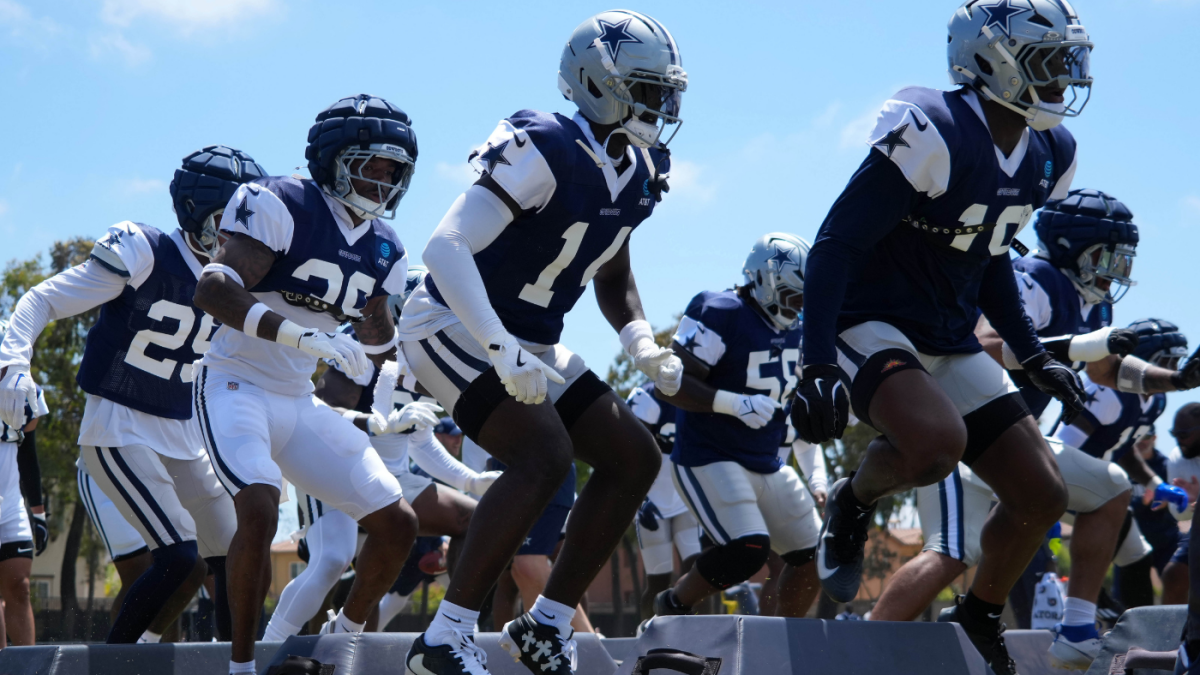The Schottenheimer Effect: Discipline and Dynamics in the Cowboys’ Training Camp
The Dallas Cowboys’ training camp in Oxnard, California, has become a microcosm of the intense, high-stakes world of professional football. This year’s camp has been marked by a series of heated exchanges and altercations, prompting new offensive coordinator Brian Schottenheimer to implement a firm, old-school approach to discipline. The incidents and subsequent responses raise important questions about the balance between discipline and player morale, and the long-term impact on the team’s cohesion and performance.
A Boiling Point in Oxnard
The Cowboys’ training camp has been anything but serene. Reports indicate that multiple fights erupted during practices, particularly during competitive red-zone drills. These altercations were not minor skirmishes but full-fledged physical confrontations that required intervention from coaches and teammates. The frequency and intensity of these incidents crossed a line, necessitating a decisive response from Schottenheimer.
The red-zone drills, designed to simulate high-pressure game situations, have become a flashpoint for tension. Players are pushed to their physical and mental limits, and the competition for starting positions adds another layer of intensity. The result has been a series of heated exchanges that have disrupted the flow of practice and raised concerns about the team’s chemistry.
Schottenheimer’s Response: A Blast from the Past
In response to the escalating aggression, Schottenheimer halted practice and ordered the entire team, including coaches, to run sprints. This disciplinary action is reminiscent of traditional coaching methods, a stark contrast to the more player-friendly environments prevalent in modern football. Schottenheimer’s approach sends a clear message: discipline and accountability are non-negotiable.
The sprints served as a collective punishment, emphasizing that the team’s actions have consequences. Schottenheimer also ejected a player from practice for throwing a punch, demonstrating that individual actions will not be tolerated. This firm stance is a departure from the more lenient approaches seen in recent years, signaling a return to a more disciplined, structured environment.
Player Reactions: Praise and Perspective
Interestingly, Schottenheimer’s disciplinary actions have received support from some key players. This suggests that, despite the initial shock, players understand the need for maintaining order and preventing the escalation of conflicts. Their support underscores the idea that players themselves recognize the importance of discipline in achieving team goals.
However, not all players may share this perspective. Veterans, in particular, may feel that their experience and contributions are being undervalued. The risk of resentment is real, and Schottenheimer must navigate this delicate balance carefully. Effective communication and a clear explanation of the reasons behind his decisions will be crucial in gaining the team’s buy-in.
The Broader Context: More Than Just Fights
The fights during training camp are symptoms of deeper dynamics within the team. Training camp is designed to push players to their limits, both physically and mentally, in preparation for the grueling demands of the regular season. Competition for starting positions, personal pride, and the sheer intensity of the practices can all contribute to heightened emotions.
Moreover, the Cowboys are under immense pressure to perform well this season, given their history and the expectations of their fanbase. This pressure can intensify the competitive atmosphere and lead to friction among players. The team’s ability to manage these pressures and channel them into productive energy will be a key factor in their success.
The Potential Impact: Forging Unity or Fostering Resentment?
The long-term impact of Schottenheimer’s actions remains to be seen. On one hand, his decisive intervention could foster a stronger sense of unity and discipline within the team. By holding everyone accountable, he is emphasizing that individual actions have consequences and that team success depends on collective responsibility. This could lead to improved communication, mutual respect, and a greater commitment to shared goals.
On the other hand, there is a risk that Schottenheimer’s approach could breed resentment among some players. Public punishments can be demoralizing, especially for veterans who are accustomed to more autonomy. If players feel that they are being treated unfairly or that their concerns are not being heard, it could lead to disengagement and a decline in performance. It is crucial for Schottenheimer to balance his commitment to discipline with empathy and understanding, ensuring that players feel valued and respected.
The Road Ahead: Discipline and Dialogue
As the training camp progresses, it will be essential for Schottenheimer to continue to address the underlying causes of the conflicts. This could involve facilitating open communication between players, providing opportunities for conflict resolution, and reinforcing the importance of sportsmanship and respect. Furthermore, he needs to clearly articulate his expectations for player behavior and consistently enforce those expectations, demonstrating that discipline is not arbitrary but rather a fundamental aspect of the team’s culture.
Schottenheimer’s ability to communicate his vision and expectations will be critical. He must ensure that players understand the rationale behind his decisions and see the value in maintaining a disciplined, respectful environment. This will require ongoing dialogue and a willingness to listen to players’ concerns.
Beyond Punishment: Building a Culture of Respect
Ultimately, the success of the Cowboys this season will depend not only on their physical talent but also on their ability to work together effectively as a team. While Schottenheimer’s initial response to the fights was necessary to regain control, it is only the first step in building a sustainable culture of discipline and respect.
By fostering open communication, promoting mutual understanding, and reinforcing the importance of collective responsibility, Schottenheimer can help the Cowboys channel their competitive energy in a positive direction. This will require a consistent, fair approach to discipline, coupled with a commitment to building a supportive, respectful team environment.
The Cowboys’ training camp has been a test of discipline and dynamics, but it also presents an opportunity for growth. Schottenheimer’s leadership will be pivotal in shaping the team’s trajectory, and his ability to balance discipline with empathy will determine the team’s success. As the season approaches, the Cowboys must focus on unity, respect, and a shared commitment to excellence.

